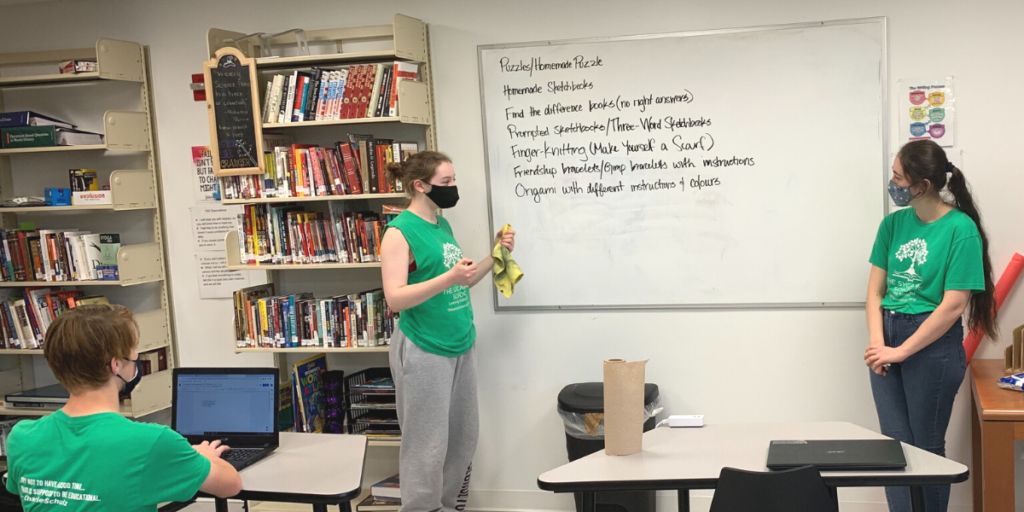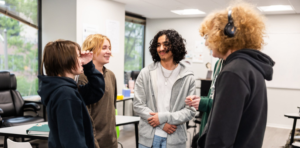Cultivating Empathy

We strive to do our best as parents and teach our children how to grow up to be self-sufficient adults. We also want them to become kind and generous adults. Good people. I recently read an article titled For Families: 5 Tips for Cultivating Empathy which reminded me that raising kind and generous adults is not an easy task.
How do we cultivate empathy in our children? Our children learn from our actions more than our words. They pay attention to what’s important to us, how we spend our time, and how we treat others. If we want to cultivate empathy in our children, we need to model that behavior ourselves. How do we treat others? Not just our friends, co-workers, and family members who we deem to be our peers, but also the many individuals that make up our community, including waiters, cashiers, custodians, solicitors, and mail delivery people? Empathy is about perspective-taking and compassion.
Do we, as parents, demonstrate empathy with our children? Do we try to understand their perspective, or instead persuade them to mirror ours? Do we take time to investigate who our children are, what’s important to them and their interests? Do we value them as individuals or do we try to mold them into being who we want them to be?
I’m hopeful that caring for others is important to all of us. But do we always show how important it is to us? As parents, do you model that value in your lives? Are you involved in activities that give back to others, such as community service? Getting your children involved in community service helps them recognize that the world doesn’t revolve around them and that there are others in our community who are in need. Youth often show their best selves when they are in service of others. This is one of the reasons why at TSS we regularly engage the students in community service work, whether it is bagging lunches for a homeless shelter or developing boredom buster games for teens/tweens living in a family shelter. Our students seem at their best when helping others, whether it is through our community service projects or assisting their peers at school.
I recently heard a speaker, Dr. Karen Cassiday, who spoke about attribution bias (she’s coming to TSS in January). She said that when we make a mistake, we tend to blame it on circumstances, but when others make mistakes, we blame it on bad character. When your child complains about someone else, do you join them in the complaint, or do you encourage them to think about what that person may be thinking or feeling? What is it like to be in their shoes? A good tip is to help your child think about the circumstance and ponder what makes people act in ways that we may not like. For example, if your child complains about a peer being annoying, do you share in their frustration or do you wonder out loud, what that child must be feeling or struggling with, to behave in that way?
Last year, my son shared with me about a peer in his Spanish class who was very disrespectful to their teacher. The student called the teacher names, displayed disruptive behavior, and acted out in his class. My son felt badly for the teacher and was upset with the student. However, he also reflected that the student must be really troubled and have a lot going on if she was treating people that way.
Do you encourage your child to explore different points of view and to understand people from different backgrounds or who have different values? Understanding different perspectives and where people are coming from also fosters empathy.
Does your child exhibit self-control? Can they work through conflicts? Are they able to manage difficult emotions? As parents, we often wish for our children just to be happy. However, the reality is, we can’t always be happy. In fact, if we were, I’m not sure the happiness would be as meaningful. It’s normal that sometimes we’re sad, angry or frustrated. We need to allow our children to feel troublesome emotions and teach them how to work through those feelings. Children need a range of coping skills and the capacity to work through conflict. I recently heard a speaker make a comment that stress in and of itself is not bad, rather it’s your attitude about stress that impacts us. Resilient people view stress differently; they don’t view it as bad but see it as a cue to use our coping skills.
Managing ourselves and our children is quite a challenge, especially under the current circumstances. As you navigate your own emotions and work to be present and guide your child, remember there can be some positives out of this pandemic. Exhibiting kindness to others and helping your children develop coping skills will go a long way to help your child come out of this pandemic a better kid and ultimately a better adult.
If you are interested in learning more about cultivating empathy in your child, join us for “Great Expectations: What to Hope for If You Want Your Kids to Thrive presented by Karen Cassiday, Ph.D.” on January 14th. This talk will be open to the community.
Posted in:

